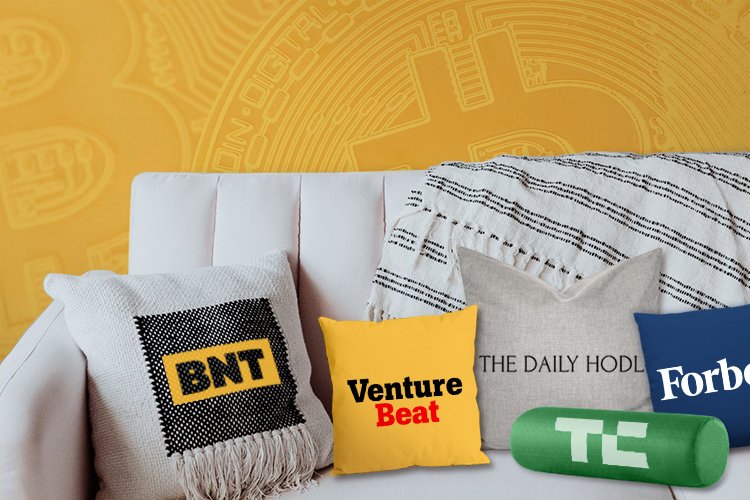Image Of The Weekend, 1-2 of September: Daily Hodl, Forbes, The Economist and Others

We're presenting "the image of the weekend". Bitnewstoday.com has chosen the most important news about the digital economy and virtual currencies. Only the most valuable stories from only the trusted sources. Each and every event from this list will change the world of the digital economy either way. The most important stories of this weekend in the most indicative quotes are below!
1. BUSTED BEARS (Daily Hodl)
Bears of the crypto are getting out of steam
The CEO of Genesis Global Trading, Michael Moro, told CNBC’s Fast Money that the biggest factor was the market getting over the Bitcoin ETF hype.
“Once the news broke about the SEC rejection, the price actually held. We didn’t see the 5, 10, 15% sell-off that we’ve seen in previous rejections, and the technicals right around the $5,800- $5,900 levels held. I think the bears have realized that they’ve run out of steam”.
New York-based Genesis Global Trading is an OTC cryptocurrency trading platform for high net worth individuals and institutional traders. Offering two-sided liquidity for crypto buyers and sellers since May 2013, the company is one of only nine companies to hold a New York BitLicense.
2. A QUESTION OF VALUE (Forbes)
Bitcoin At $7000, Undervalued Or Overvalued?
At $7,000, Bitcoin can be both undervalued or overvalued, depending on how the “intrinsic” value of the digital currency is calculated.
After testing the $6000-mark for a while, Bitcoin has staged a big comeback lately. In the last seven days, the digital currency has rallied 6.15%, trading close to the $7,000-mark. Other cryptocurrencies have rallied in sympathy.
3. EXISTENTIAL CRISIS (Venture beat)
Could ‘community apps’ built on blockchain solve Facebook’s existential crisis?
“We came here for the friends”. In the face of a reputation crisis, Facebook is investing heavily in a nationwide advertising campaign to remind us that it is a community first, a business second.
The campaign has gone so far as to recognize that spam, clickbait, fake news, data misuse, and the political scandal have eroded public trust in the social network’s ability to police and protect its users. Far from its much-professed community values, Facebook’s treasure trove of personal data has been abused – both knowingly and unknowingly – to fundamentally undermine the trust people place in the platform.
4. CRITICAL POINT (Tech Crunch)
Thailand is becoming a critical country for blockchain
While United States regulators are still trying to figure out how to think about cryptocurrencies, Thailand’s government is already mapping out its own central bank digital currency.
Since the start of the year, the Thai government has become increasingly outspoken and welcoming of cryptocurrency projects and exchanges. In just a few months, Thai regulators have made notable progress, from setting up cryptocurrency company licenses to permitting exchanges and ICOs. More importantly, the country has attracted foreign companies by providing clear and explicit guidelines for foreign blockchain companies to operate. It’s a pattern that we are seeing across Southeast Asia and one that blockchain and cryptocurrency startup founders should take note as they think about global expansion.
5. BLOCKCHAIN CAN INTO POWER (The Economist)
What blockchains may be able to do for energy business
WEPOWER IS a Lithuanian startup that aims to change the way renewable-electricity projects are paid for. The government-guaranteed prices that have propelled growth in wind and solar energy around the world are being cut back, says Nick Martyniuk, WePower’s founder. So, his firm wants to help developers of renewables raise money by selling the rights to the electricity their plants will produce once built. Customers will buy a smart contract now, running on Ethereum’s blockchain, that will provide them with power later.
Using a blockchain offers several advantages, says Mr. Martyniuk, who used to work as an energy trader. Big energy users such as foundries and aluminium smelters already negotiate such contracts with power stations, but they are often complex and time-consuming. Contracts on a blockchain could be offered off the shelf, allowing smaller companies—and perhaps, one day, individuals—to use them too. Such contracts would be as easily tradable as any other crypto-asset, creating a secondary market in power agreements.